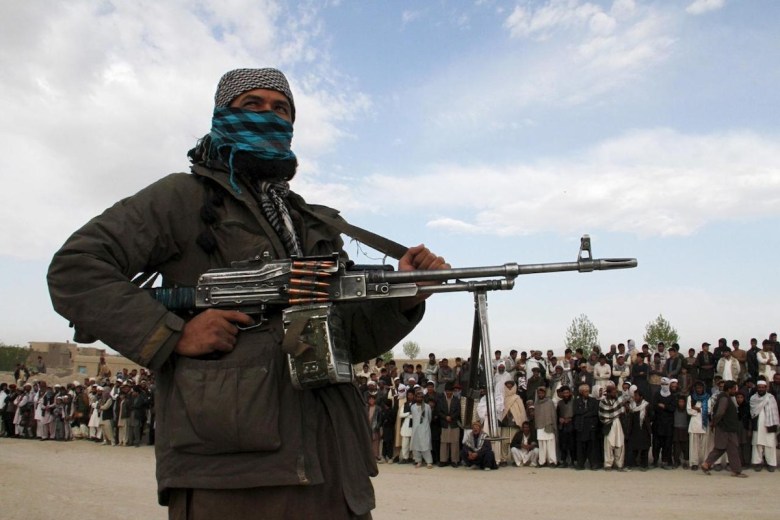Politics
Taliban Clash with Pakistan Forces Signals Shift in Power Dynamics

Recent clashes along the Pakistan-Afghanistan border have intensified tensions between the Taliban and Pakistani forces, marking a significant shift in the region’s power dynamics. On October 11-12, 2023, fighting erupted, resulting in substantial casualties. Kabul reported that it had killed 58 Pakistani soldiers, while Islamabad acknowledged the loss of 23 troops and claimed to have killed over 200 Taliban and affiliated fighters. Major border crossings at Torkham and Chaman were closed as hostilities subsided on the morning of October 12.
The immediate catalyst for the violence was a Pakistani airstrike in Kabul, targeting Tehrik-e-Taliban Pakistan (TTP) emir Noor Wali Mehsud, according to a Pakistani security official. While Islamabad has not confirmed the details of the strike, the Taliban condemned it as a violation of Afghan sovereignty, promising retaliation. This incident underscores a critical development: Pakistan is now willing to conduct operations beyond its borders against perceived threats, while the Taliban is prepared to respond militarily to such provocations.
The clashes reflect a broader trend of escalating violence linked to the TTP, with the Centre for Research and Security Studies (CRSS) reporting 2,414 fatalities in the first three quarters of 2023, nearing the total of 2,546 for all of 2022. The Armed Conflict Location & Event Data Project (ACLED) documented at least 600 attacks by the TTP over the past year, illustrating a surge in militant activity that has prompted Islamabad to reassess its security posture.
Strategic Depth Becomes Security Sinkhole
Historically, Pakistan viewed the Taliban as a means of achieving “strategic depth” against India. However, the reality has shifted dramatically since the Taliban’s takeover in Afghanistan in 2021. The current Afghan leadership prioritizes national sovereignty over dependence on Pakistan, leading to increased tensions over the Durand Line, which Pakistan seeks to enforce unilaterally. This evolving relationship has resulted in a volatile border situation, where both parties engage in reciprocal strikes.
The recent military engagements spanned regions from Khyber Pakhtunkhwa to Balochistan, including areas such as Angoor Adda, Bajaur, and Kurram. Pakistan’s military reported capturing several Taliban positions, while the Taliban declared their operations successful, warning of further reprisals if attacked again. The closure of border crossings serves as a lever for Islamabad, impacting Afghan trade and transit.
Additionally, the geopolitical context complicates the situation. During the clashes, Taliban Foreign Minister Amir Khan Muttaqi was in New Delhi, indicating Kabul’s efforts to strengthen ties with regional powers. Countries like Saudi Arabia and Qatar have called for restraint, but these international dynamics do not alter the immediate realities on the battlefield.
Future Implications for Regional Security
Pakistan’s response to the TTP’s resurgence has led to a precarious situation. Analysts warn that cross-border raids might provoke additional TTP reprisals, potentially drawing Islamabad into a continuous cycle of violence. The strategic “depth” that Pakistan once sought has transformed into a security sinkhole, consuming resources while heightening risks.
In light of these developments, Pakistan is likely to adopt a mixed strategy, combining targeted airstrikes and artillery with economic measures such as border closures. Islamabad may also seek assurances from international partners like Doha, Riyadh, and Beijing that the Taliban will manage TTP activities, despite the latter’s public denial of hosting them.
For the Taliban, retaliating against perceived threats is crucial for maintaining domestic legitimacy. Facing economic challenges and an insurgency from the Islamic State-Khorasan Province (ISIS-K), the Taliban cannot afford to appear weak. This balancing act, however, poses risks to Afghanistan’s economy, as ongoing skirmishes threaten trade and foreign investment.
The implications for South Asian security are profound. India will likely engage with Kabul in a limited, transactional manner, avoiding formal recognition. Gulf states will continue to advocate for de-escalation to mitigate disruptions in refugee flows and energy corridors. China, too, is focused on maintaining stability to protect its investments in the China-Pakistan Economic Corridor (CPEC).
As the situation evolves, Pakistan faces difficult policy choices. A purely military approach risks escalating TTP violence, while diplomatic efforts have failed to curtail cross-border activities. A balanced strategy might involve targeted pressure alongside specific, time-limited agreements regarding TTP leaders, verified through third-party oversight.
Ultimately, the weekend’s clashes highlighted the fragility of the current security landscape. For Islamabad, the concept of “strategic depth” has devolved into strategic exposure, characterized by a contested border, a resurgent insurgency, and a neighbor willing to engage militarily. The pathway to stability may lie in incremental, verifiable actions that limit TTP influence while preventing the border from becoming a perpetual war zone.
-

 Business5 months ago
Business5 months agoKenvue Dismisses CEO Thibaut Mongon as Strategic Review Advances
-

 Lifestyle4 months ago
Lifestyle4 months agoHumanism Camp Engages 250 Youths in Summer Fest 2025
-

 Sports4 months ago
Sports4 months agoDe Minaur Triumphs at Washington Open After Thrilling Comeback
-

 Sports5 months ago
Sports5 months agoTupou and Daugunu Join First Nations Squad for Lions Clash
-

 Top Stories5 months ago
Top Stories5 months agoColombian Senator Miguel Uribe Shows Signs of Recovery After Attack
-

 World5 months ago
World5 months agoASEAN Gears Up for Historic Joint Meeting of Foreign and Economic Ministers
-

 Health4 months ago
Health4 months agoNew Study Challenges Assumptions About Aging and Inflammation
-

 Business5 months ago
Business5 months agoOil Prices Surge Following New EU Sanctions on Russia
-

 Entertainment4 months ago
Entertainment4 months agoDetaşe-Sabah Violin Ensemble Captivates at Gabala Music Festival
-

 Entertainment4 months ago
Entertainment4 months agoBaku Metro Extends Hours for Justin Timberlake Concert
-

 Top Stories5 months ago
Top Stories5 months agoRethinking Singapore’s F&B Regulations Amid Business Closures
-

 Business5 months ago
Business5 months agoU.S. House Approves Stablecoin Bill, Sends to Trump for Signature









